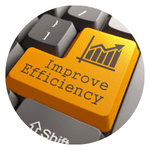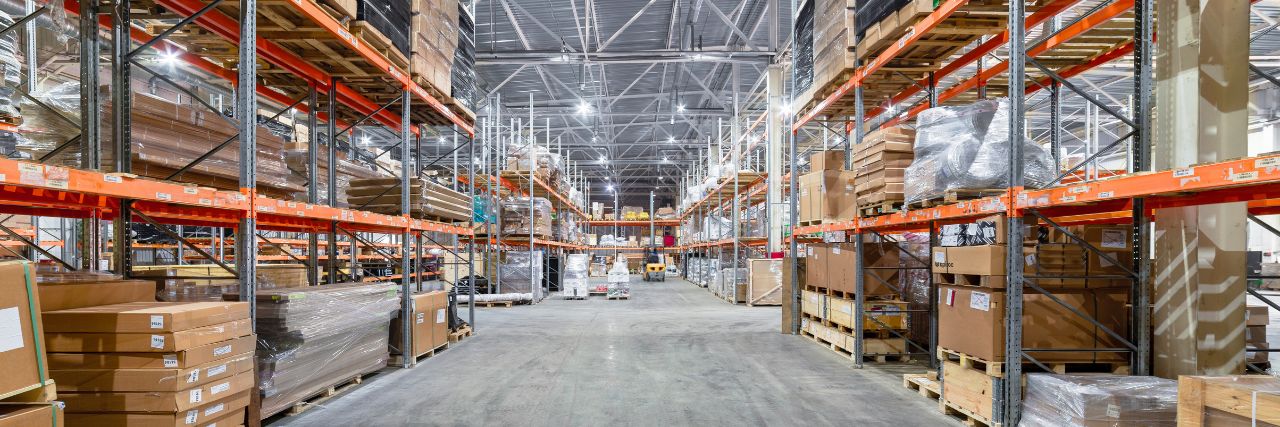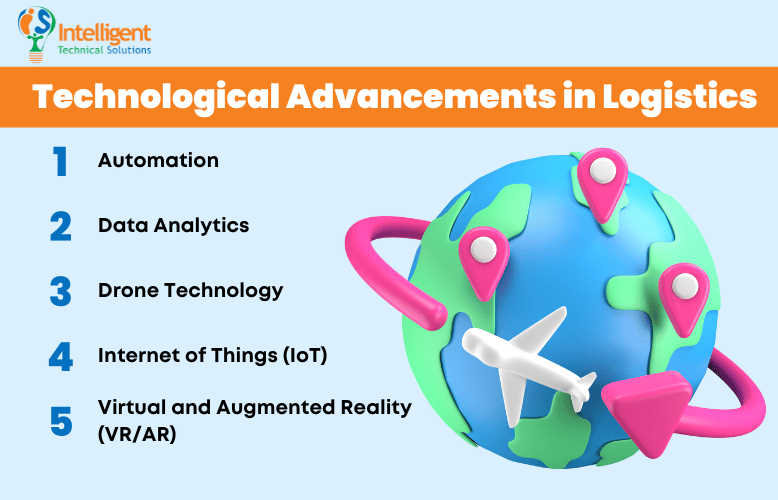3. Drone Technology
Drone technology has also made great strides in recent years, with logistics companies exploring its potential for delivering packages and supplies. Drones can fly over traffic and reach remote locations, making them an ideal solution for delivering goods in challenging environments.
Drones are also faster and more cost-effective than traditional delivery methods, making them a compelling option for companies looking to improve delivery times and reduce costs.
4. Internet of Things (IoT)
IoT is another area that is transforming the logistics industry. IoT devices, such as sensors and tracking devices, can be placed on packages, containers, and vehicles, enabling companies to track their movements in real time. This information can then be used to optimize delivery routes and reduce transit times.
5. Virtual and Augmented Reality (VR/AR)
VR and AR provide training, simulate real-world scenarios, and improve safety. For example, VR can train employees on how to operate complex machinery, while AR can provide real-time information and guidance to workers in the field.
How Technology Benefits the Logistics Industry
The logistics industry is one of the more critical and complex industries in the world as it involves many moving parts, including managing schedules and supply lines, mapping delivery routes, and delivering shipments.
That is why embracing technology to streamline processes and improve overall efficiency is all the more important.
Here are three of the most significant benefits of technology in your logistics business:
1. Enhanced Efficiency
 One of the most notable benefits of technology in the logistics industry is improved efficiency. With advanced technologies like GPS, automation, and the IoT, companies like yours can now track the movement of your goods in real time.
One of the most notable benefits of technology in the logistics industry is improved efficiency. With advanced technologies like GPS, automation, and the IoT, companies like yours can now track the movement of your goods in real time.
This has made it easier for businesses to:
- Optimize supply chain operations, reducing the time it takes for goods to reach their destination
- Allow a faster response time to any issues that may arise during transit, minimizing the risk of delays and lost shipments
- Provide customers with more accurate and up-to-date information on the status of their shipments, improving transparency and building trust
2. Reduced Costs
 The use of technology has also had a significant impact on the cost structure of the logistics industry. Automating certain processes has reduced the need for manual labor, resulting in lower labor costs.
The use of technology has also had a significant impact on the cost structure of the logistics industry. Automating certain processes has reduced the need for manual labor, resulting in lower labor costs.
In addition, GPS and real-time tracking have made it easier for companies to optimize their routes, reducing the amount of fuel they use and, therefore, reducing their carbon footprint.
This has resulted in lower operating costs, which can be passed on to customers through lowered rates or better services.
3. Improved Customer Experience
 With the help of online tracking and delivery updates, customers can now track the status of their deliveries in real time and have a clear idea of when they can expect to receive their packages. This gives customers peace of mind and reduces the stress and uncertainty of waiting for a delivery.
With the help of online tracking and delivery updates, customers can now track the status of their deliveries in real time and have a clear idea of when they can expect to receive their packages. This gives customers peace of mind and reduces the stress and uncertainty of waiting for a delivery.
In addition, technology has also enabled companies to offer a range of customer-friendly services, such as same-day delivery and flexible delivery options.
Need Help Managing the Technology of Your Logistics Business?
In an industry where technology plays a crucial role in ensuring everything runs smoothly, you need a dedicated team of experts to help you manage your IT. This responsibility may be too much for your in-house IT, so outsourcing may benefit your business in the long run.
Whether you are a small logistics business or a large enterprise, hiring a Managed IT Service Provider (MSP) is a smart investment that can help you achieve your business goals and succeed in a highly competitive industry. Partnering with an expert IT service provider can easily provide you with the following technological benefits:
- Enhanced operational efficiency
- Reduced costs
- Improved customer experience
At ITS, we help hundreds of clients make intelligent choices about their technology. If you’re still undecided, check out the following resources:
Topics:


